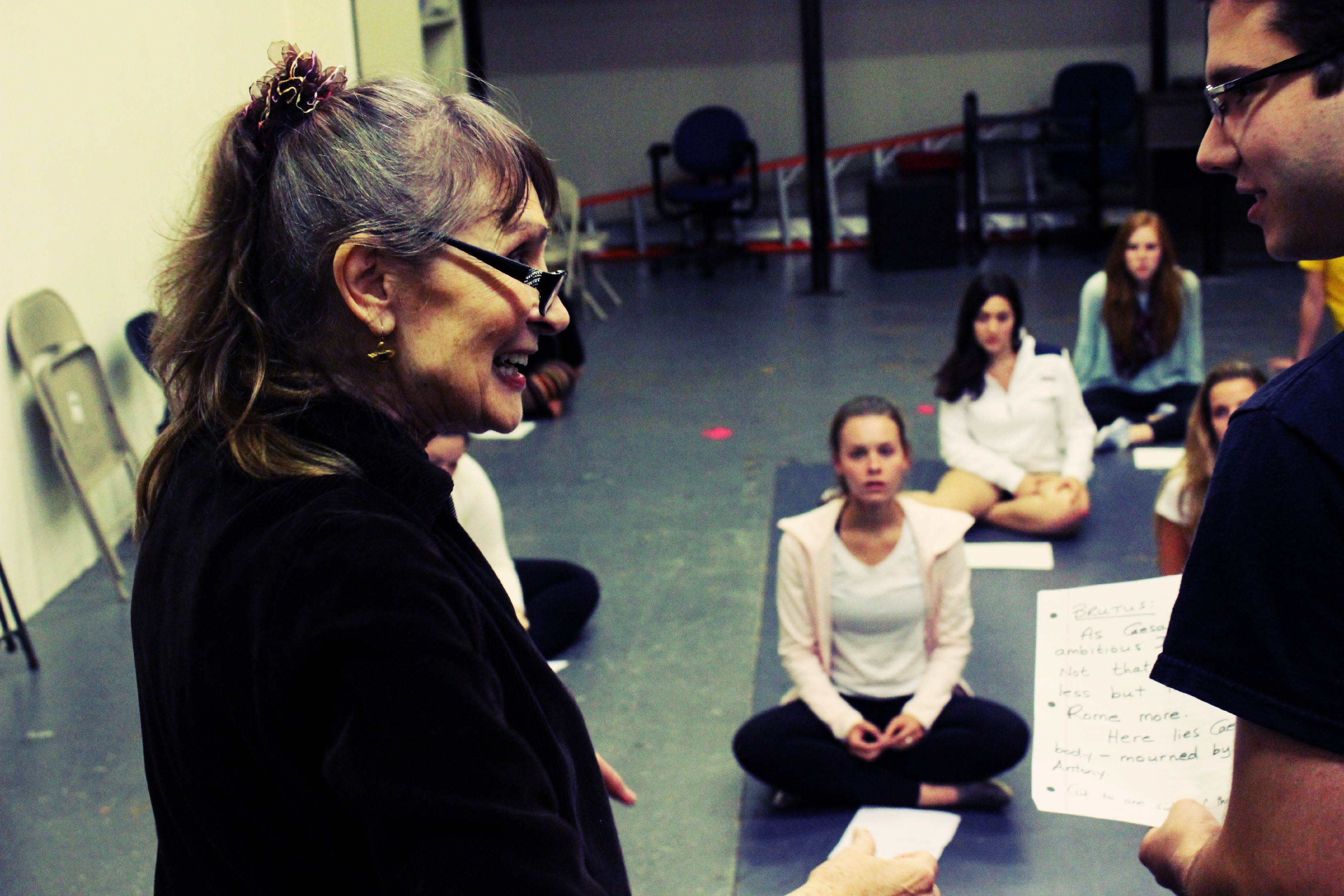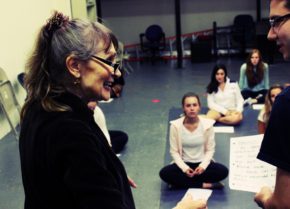Sybil Lines
Summer Classical Text
 Sybil Lines started her career as Marion Lines. She was a member of the Royal Shakespeare Company performing in London, Stratford-on-Avon and Japan; took over the role of Kate in Bedroom Farce on Broadway; has played major roles in Britain and the US.; and other Broadway credits include Waiting in the Wings; Aren’t We All and Lettice & Lovage. She was directed by Alan Schneider in Footfalls; played “Grace” in The Philanderer at the Roundabout; “Angie” in Claw at the Manhattan Theater Club; “Ruth” in Blithe Spirit with Christine Baranski; ” Dr. Scott” in the American premiere of Whose Life Is It, Anyway?; David McCallum’s wife in Run for Your Wife; and “Mrs Allonby” in A Woman of No Importance with Dixie Carter and directed by Michael Kahn. Classical roles have included Shakespeare’s Gertrude, Viola, Lady Macbeth , Rosalind, Mistress Quickly, Mistress Ford, Juliet’s Nurse, Maria, Portia, Alice, Marianne, Timandra and the Princess of France; as well as Webster’s Julia (Duchess of Malfi); Moliere’s Elise (Miser); Sheridan’s Julia (Rivals); Chekov’s Masha (Three Sisters) and Varya (The Cherry Orchard) which earned her a Helen Hayes Nomination. T.V. credits include appearances on the BBC; “Madge” in Murder She Wrote; “Gloria” on The Hogan Family and the recurring role of villainess “Libby Webster” on Edge of Night. She has taught at London’s Royal Central School of Speech and Drama; USEA: Academy of the Spoken Word, in Germany; the Drey Institute; Catholic University in D.C.; and the Actors’ and Directors’ Lab in NYC. More recently she played “Lillian Troy” in I Hate Hamlet at Pioneer Theatre and “Breda” in The New Electric Ballroom for Studio Theatre in Washington D.C.
Sybil Lines started her career as Marion Lines. She was a member of the Royal Shakespeare Company performing in London, Stratford-on-Avon and Japan; took over the role of Kate in Bedroom Farce on Broadway; has played major roles in Britain and the US.; and other Broadway credits include Waiting in the Wings; Aren’t We All and Lettice & Lovage. She was directed by Alan Schneider in Footfalls; played “Grace” in The Philanderer at the Roundabout; “Angie” in Claw at the Manhattan Theater Club; “Ruth” in Blithe Spirit with Christine Baranski; ” Dr. Scott” in the American premiere of Whose Life Is It, Anyway?; David McCallum’s wife in Run for Your Wife; and “Mrs Allonby” in A Woman of No Importance with Dixie Carter and directed by Michael Kahn. Classical roles have included Shakespeare’s Gertrude, Viola, Lady Macbeth , Rosalind, Mistress Quickly, Mistress Ford, Juliet’s Nurse, Maria, Portia, Alice, Marianne, Timandra and the Princess of France; as well as Webster’s Julia (Duchess of Malfi); Moliere’s Elise (Miser); Sheridan’s Julia (Rivals); Chekov’s Masha (Three Sisters) and Varya (The Cherry Orchard) which earned her a Helen Hayes Nomination. T.V. credits include appearances on the BBC; “Madge” in Murder She Wrote; “Gloria” on The Hogan Family and the recurring role of villainess “Libby Webster” on Edge of Night. She has taught at London’s Royal Central School of Speech and Drama; USEA: Academy of the Spoken Word, in Germany; the Drey Institute; Catholic University in D.C.; and the Actors’ and Directors’ Lab in NYC. More recently she played “Lillian Troy” in I Hate Hamlet at Pioneer Theatre and “Breda” in The New Electric Ballroom for Studio Theatre in Washington D.C.

“This class aims to inspire excitement at inhabiting characters with deep primal needs. Visceral group-work with psychological, emotional and physical exercises help to marry weight and intensity to the actors’ imagination.
Expressing epic situations believably is aided with heightened language and meter if phony tonal qualities and surface sing-song delivery are avoided. Recognizing the expanded energy required, and their characters’ relish in grasping each specific word, the actors make these passionate roles their own”
Back to: Faculty Listing


